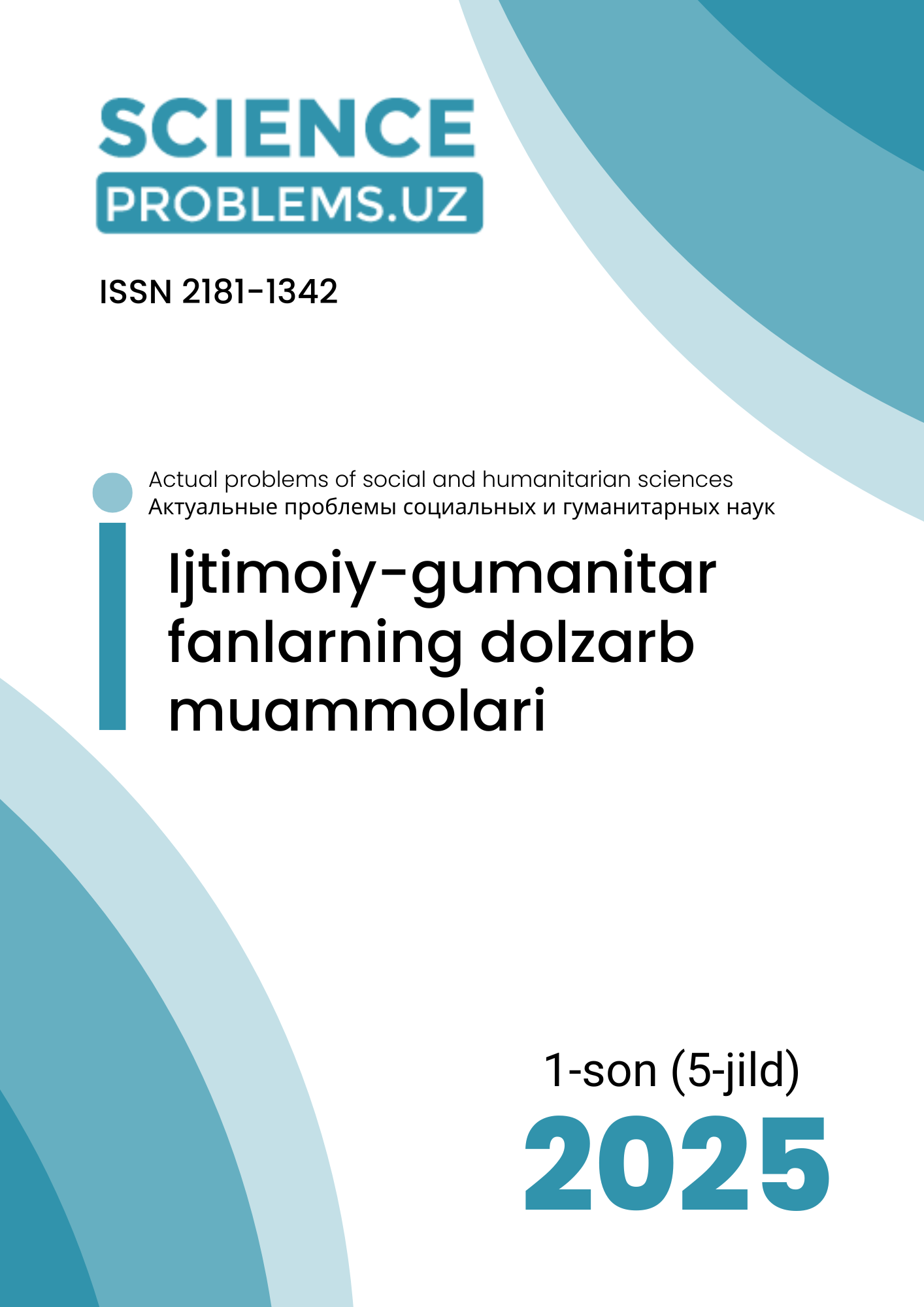INGLIZ VA OʻZBEK TILLARIDA XALQ TABOBATIGA OID LEKSIK BIRLIKLARNING DERIVATSION TADQIQI
Kalit so'zlar
https://doi.org/10.47390/SPR1342V5I1Y2025N32Kalit so'zlar
xalq tabobati, leksik birliklar, derivatsion tahlil, ingliz tili, oʻzbek tili, tibbiy terminologiya, morfologik tahlil, oʻzlashmalar, semantik tahlil, xalq amaliyoti.Annotasiya
Ushbu maqola ingliz va oʻzbek tillarida xalq tabobatiga oid leksik birliklarning derivatsion tahliliga
bagʻishlangan. Xalq tabobati atamalari oʻz milliy madaniyat va tibbiyot tarixidan kelib chiqqan boʻlib, ushbu leksik
birliklarning morfologik va semantik jihatlari oʻrganiladi. Maqolada ingliz va oʻzbek tillarida xalq tabobati
atamalarining shakllanishi va rivojlanishi, ularning oʻzlashuv jarayonlari, shuningdek, har ikkala tilning morfologik
va semantik xususiyatlari qiyosiy tahlil qilingan. Tadqiqotda xalq tabobati terminlarining lingvistik shakllanish
usullari va madaniy kontekstlari ham oʻrganilgan.
Manbalar
1. Haspelmath, M. (2019). Derivational Morphology of English Medical Terminology. New
York: Routledge.
2. Kadirzhanov, A. (2017). Comparative Analysis of Traditional Medicine Lexicons in Turkic
Languages. Toshkent: O‘zbekiston milliy entsiklopediyasi.
3. Brown, M. (2018). Traditional Medicine and Lexicography. New York: Routledge.
4. Geertz, C. (2020). Folk Medicine in Modern Society: The Influence of Cultural Practices on
Healthcare Systems. London: Palgrave Macmillan.
5. Smith, J. (2020). Herbal medicine and folk remedies in England. London: Oxford
University Press.
6. Alimov, A. (2019). O‘zbek xalq tabobati: Leksik va semantik tahlil. Toshkent: O‘zbekiston
milliy entsiklopediyasi.
7. Brown, M. (2018). Traditional Medicine and Lexicography. New York: Routledge.
8. Cambridge, J. (2020). The Role of Folk Medicine in Contemporary Medical Discourse.
Cambridge University Press.








